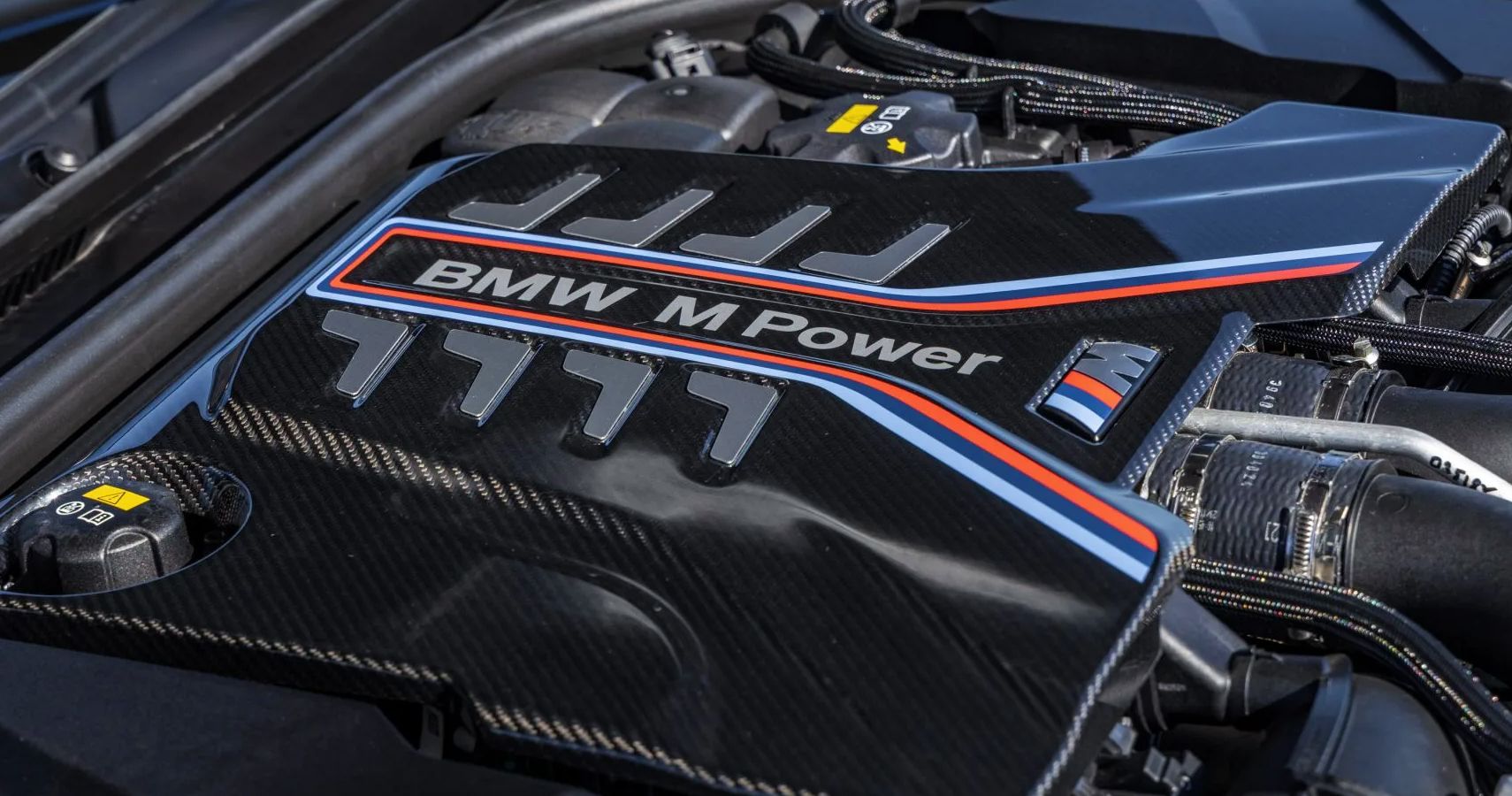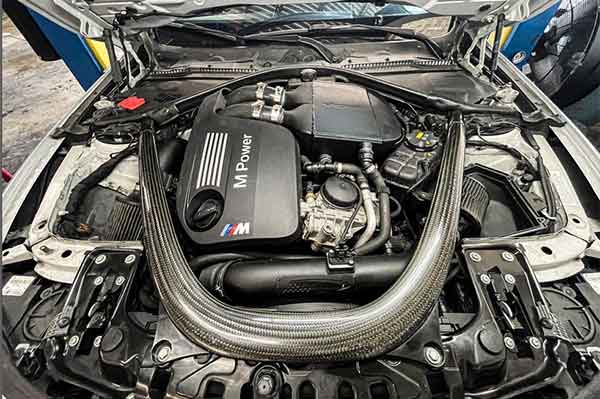The Evolution of the BMW Engine: A Recall at Iconic Designs
The Evolution of the BMW Engine: A Recall at Iconic Designs
Blog Article
Revealing the Intricacies of Next-Generation Power Units: a Deep Dive Into Advanced Engine Layouts and Technologies
In the realm of automotive engineering, the unrelenting search of sustainability, efficiency, and efficiency has actually moved the evolution of power devices to unmatched heights. As we stand on the precipice of a brand-new era in transport, the complexities of next-generation engine designs bid us to explore the cutting-edge innovations and advancements that guarantee to redefine the driving experience. From innovative materials that push the limits of toughness and weight decrease to innovative turbocharging and turbo charging systems that elevate power result to new degrees, each element of these power systems holds a vital to opening the future of automotive engineering. Digging much deeper right into the realms of emission control, smart engine monitoring systems, and the perspective of power unit development, we discover ourselves on the cusp of a transformation that promises to reshape the landscape of movement as we understand it.
Development of Engine Materials

The change towards advanced engine products has likewise made it possible for designers to design engines with higher power outputs while maintaining gas efficiency criteria. The usage of lightweight materials lowers the total weight of the engine, leading to boosted gas economic climate and lower emissions. In addition, advancements in products technology have enabled for better thermal administration within engines, leading to increased reliability and long life.
Turbocharging and Supercharging Technologies
Just How do Turbocharging and Supercharging Technologies reinvent engine efficiency and effectiveness in modern-day automobiles? Supercharging and turbocharging are technologies that dramatically enhance engine performance by raising the quantity of air intake into the burning chamber. Turbocharging achieves this by using a turbine driven by exhaust gases to pressurize the consumption air, while supercharging uses a belt- or chain-driven compressor to attain the same result.
These technologies enable smaller sized, extra fuel-efficient engines to produce power equivalent to bigger ones, recognized as downsizing. Forcibly even more air into the cylinders, supercharging and turbocharging enhance burning performance, resulting in raised horse power and torque outcome without a substantial rise in engine size. This brings about better velocity, towing capability, and general driving performance.
Additionally, turbo charging and turbocharging add to boosted fuel performance by allowing the use of smaller engines that take in less gas under typical driving conditions - bmw engine. This mix of improved performance and performance has actually made turbocharging and turbo charging important parts of several contemporary engine layouts
Exhaust Control and Environmental Impact
With boosting worldwide problems regarding air high quality and environmental sustainability, the implementation of emission control innovations in lorries plays a crucial function in minimizing unsafe contaminants released right into the environment. Modern lorries are outfitted with innovative discharge control systems that assist decrease the environmental effect of automotive More Info procedures. Catalytic converters, for circumstances, are created to convert hazardous gases such as carbon monoxide gas, nitrogen oxides, and hydrocarbons into less unsafe materials like co2 and water vapor.
Furthermore, improvements in engine modern technology, such as the integration of exhaust gas recirculation systems and careful catalytic reduction, have considerably contributed to reducing discharges. These innovations work in tandem to enhance combustion effectiveness and minimize the launch of harmful toxins right into the air. Additionally, the growth of crossbreed see here and electric vehicles represents an important action in the direction of minimizing the general ecological footprint of the transportation industry.
Intelligent Engine Monitoring Solution

In addition, these systems make it possible for cars to satisfy rigid emissions requirements without jeopardizing performance, providing a more eco-friendly driving experience. The integration of expert system and machine knowing capacities in engine management their explanation systems remains to push the borders of what is possible, resulting in more renovations in effectiveness, integrity, and general car efficiency. bmw engine. As automobile technology developments, intelligent engine monitoring systems will certainly play a critical duty in shaping the future of transportation in the direction of a much more efficient and lasting instructions
Future Trends in Power Device Development
As smart engine monitoring systems pave the method for enhanced control and optimization in modern lorries, future fads in power unit growth are positioned to redefine the landscape of auto propulsion technologies. These different power sources use enhanced efficiency and performance while straightening with strict environmental regulations.
Another significant trend is the assimilation of sophisticated materials and manufacturing techniques. Lightweight products such as carbon fiber and light weight aluminum are being made use of to minimize overall car weight, boosting fuel effectiveness and efficiency. Furthermore, innovations in 3D printing and additive production are enabling the production of complex engine parts with greater precision and resilience.
Additionally, artificial intelligence and device learning are playing an important duty in enhancing power system efficiency. These innovations permit real-time tracking and flexible control, bring about much more trusted and reliable power distribution. Overall, future trends in power unit growth are tailored towards efficiency, performance, and sustainability, driving the auto industry in the direction of a brand-new period of propulsion technologies.

Final Thought
In verdict, the developments in engine materials, turbocharging, emission control, and smart monitoring systems have actually led the way for next-generation power systems. These innovations have not only improved efficiency and effectiveness however also reduced environmental impact. As technology remains to evolve, future fads in power device advancement are likely to concentrate on further enhancing sustainability and optimizing power result. The detailed designs and advancements in modern engines display the continuous development of auto innovation.
Exploring the progressive innovations in engine materials has actually been essential in improving the performance and performance of modern-day engines. Over the years, the evolution of engine products has played a crucial function in pushing the borders of what engines can attain.The change towards progressed engine materials has actually also made it possible for designers to design engines with higher power results while keeping fuel effectiveness criteria.The implementation of smart engine management systems in modern automobiles has actually changed the method engines are regulated and optimized for efficiency and efficiency. By gathering information in real-time and examining it with advanced algorithms, intelligent engine management systems can adapt to driving designs, ecological elements, and engine wellness to optimize power result while minimizing fuel usage and emissions.
Report this page